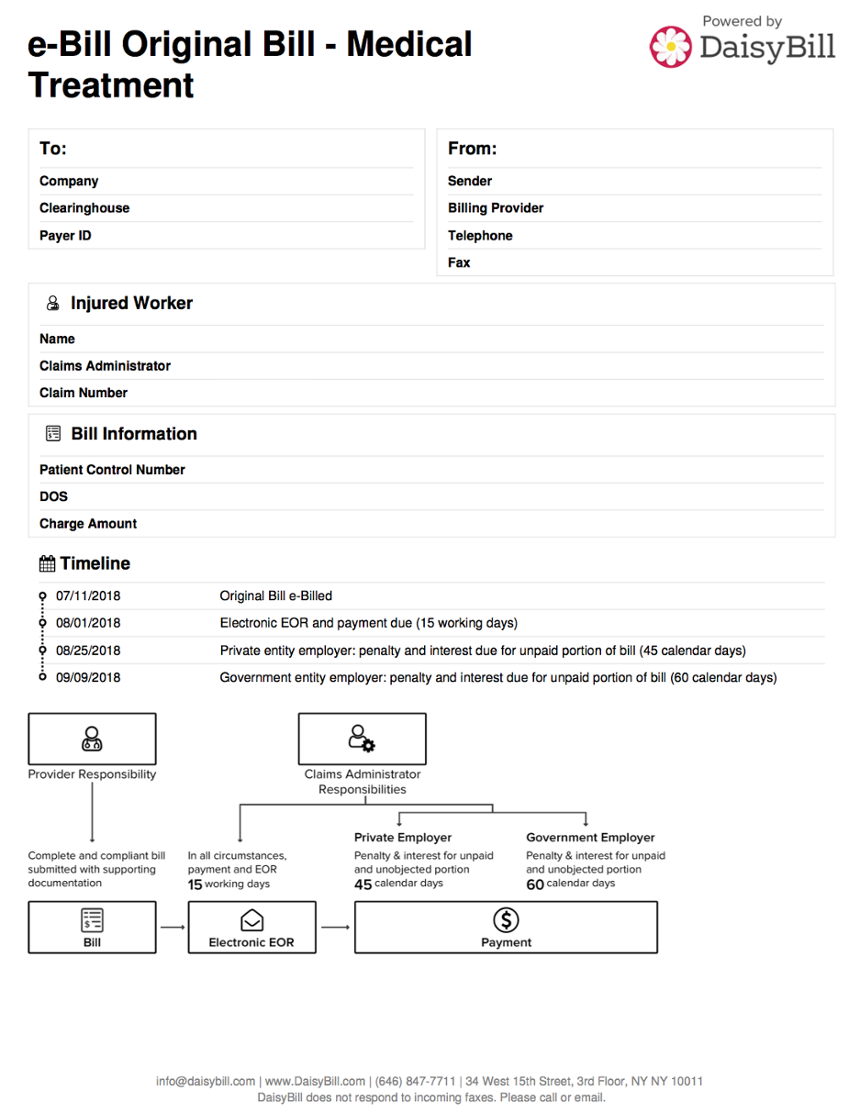Workers’ Comp Billing Tip: Use a Detailed Cover Sheet

California’s Division of Workers’ Compensation (DWC) has many strict requirements as to what constitutes a “complete” bill for the treatment of injured workers. But given the complexity of workers’ comp billing and payment rules, even a bill that’s complete by DWC standards could use a little extra clarification.
That’s why daisyBill recommends providers include a cover sheet — like the ones we provide for our billing clients — with all bills.
Our cover sheet, pictured below, features a snapshot of everything claims administrators need to know about the contents of your bill. At a glance, the claims administrator knows:
- Whether it’s an original bill, duplicate bill, a second bill review appeal, or an independent bill review appeal
- The type of service billed for (physician services, medical-legal, pharmacy, etc.)
- Provider information
- Patient and claim information
- When the claims administrator’s response and payment are due
Regarding the last point, our cover sheet includes a complete timeline for the bill in question, providing exact due dates for the acknowledgment, Explanation of Review (EOR), payment, and any other applicable responses. There’s even a handy workflow chart of claims administrator responsibilities.
Workers’ comp billing and payment is complicated. A detailed cover sheet lets the claims administrator know exactly what they’re getting, and exactly what their obligations are. This way, there’s far less opportunity for error, delay, and friction.
daisyBill has you — and your bills — covered. Our Billing Software generates compliant bills, complete with detailed cover sheets, as well as RFAs and appeals. Schedule a free demonstration today.
REQUEST DEMO
DaisyBill provides content as an insightful service to its readers and clients. It does not offer legal advice and cannot guarantee the accuracy or suitability of its content for a particular purpose.




.gif)
